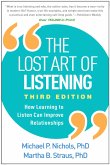Imagine a conversation where one person shares a heartfelt story. Instead of merely waiting for their turn to speak, the listener engages fully. They lean in, make eye contact, and respond with genuine interest. This creates an atmosphere of trust and respect, encouraging deeper sharing. The speaker feels valued, their emotions validated. This moment demonstrates how intentional listening transforms a simple exchange into something meaningful, fostering connection and empathy.
In today's world, we often rush through conversations, focusing on our responses rather than the words and emotions of the speaker. This tendency leads to misunderstandings and weakened bonds. As a result, we frequently find ourselves in miscommunication, frustration, and even conflict. The act of listening is often dismissed as passive, but in reality, it's an active engagement that requires effort, focus, and intention. Intentional listening goes beyond simply hearing words; it involves a deep commitment to understanding the speaker's message. It requires us to suspend our judgments, assumptions, and preconceptions, allowing us to absorb what is being said fully.
The essential role of listening in communication cannot be overstated. It forms the foundation upon which relationships are built. Without it, connections weaken, misunderstandings grow, and conflicts arise. Listening is a skill that can be cultivated, refined, and practiced, allowing us to improve our communication dynamics significantly. When we prioritize listening, we invest in our relationships and create a more harmonious environment where ideas can flourish. Think about your own interactions. How often do you find yourself distracted during conversations, checking your phone or letting your mind wander? This behavior not only undermines the connection but also signals to the speaker that their words don't matter. Intentional listening demands our full attention and a willingness to engage.
The impact of intentional listening extends beyond personal relationships. In professional settings, effective listening can lead to better teamwork, improved problem-solving, and enhanced leadership. When colleagues feel heard and understood, they are more likely to collaborate effectively and share their ideas openly. This fosters a culture of innovation and creativity, driving success and growth. In contrast, a lack of intentional listening in the workplace can create an atmosphere of distrust and disengagement. Employees may feel overlooked and undervalued, leading to decreased morale and productivity.
Listening is not just a skill; it's a powerful force that shapes our lives and relationships. It invites us to engage authentically with others, fostering a sense of belonging and understanding. As we navigate the complexities of communication in our personal and professional lives, we must prioritize intentional listening as a cornerstone of our interactions. As we move forward, let us commit to embracing the power of intentional listening. Let us recognize that every conversation holds the potential for connection and understanding.
Dieser Download kann aus rechtlichen Gründen nur mit Rechnungsadresse in A, B, CY, CZ, D, DK, EW, E, FIN, F, GR, H, IRL, I, LT, L, LR, M, NL, PL, P, R, S, SLO, SK ausgeliefert werden.









